F. Word’s Top 5 Modern-Day Sexist Ads
As the popular TV show Mad Men has reminded us all, the advertising industry is known for its sexist past, particularly in decades such as the 50s and 60s when women were mainly portrayed as housewives who could cook, clean… And not much else. In fact, when you think of a sexist ad, you probably think of “vintage” campaigns such as this one:
Or this one:
Revolting, right?
Though marketing has undoubtedly come a long way since then, several brands and particular ads still come under fire today for portraying women in a sexist way. Indeed, the main difference half a century later is that customers are not only less inclined to tolerate such ads, but they will also not hesitate to voice their disapproval. This, however, has not stopped brands in 2015 to cross the line and launch advertising campaigns that are considered demeaning towards women.
The F.Word has compiled a few modern-day ads widely criticised as sexist, and unfortunately they are far from being the only ones – proving that, even in the 21st century, sexism is still a problem and that mentalities have yet to evolve when it comes to gender equality.
1. Protein World
This fitness company’s ad, which is supposed to sell a weight-loss protein item, was probably one of the most controversial and talked about this year. Instantly accused of body-shaming as well as objectifying women, it featured heavily in the London Underground and ended up gaining international attention last April after several unhappy passers-by caused a stir by sharing pictures and strongly criticising it on social media. Petitions were started to remove the posters and the UK’s Advertising Standards Authority revealed that it received hundreds of complaints against the campaign. After the initial angry response, a number of people, including men, started sharing their own body-positive messages online. We particularly like this one:
2. Bic South Africa
It seems that 2015 was the year of sexist PR fails. Last August, pen manufacturer Bic South Africa posted what it considered an “empowering” message on Facebook to celebrate National Women’s Day. *Facepalm*. Unsurprisingly, thousands quickly took to social media to condemn the ad and express their outrage at women being asked to “think like a man”. In the brand’s defense, it was quick to apologise and decided to delete the post not long after. Unfortunately for Bic, this wasn’t the first time it got in trouble for being patronising to women: in 2012, it had already received backlash for selling different pens for men and women, the latter only coming in pink and purple and costing twice as much. Famous talk-show host Ellen DeGeneres did not let it go unnoticed:
3. France 3
Here’s another example of a company meaning to celebrate women, only to stereotype them instead. Indeed, French TV channel France 3 recently launched an anti-sexism campaign which was quickly pulled after being accused of being, well, sexist. The ad was supposed to highlight the fact that most of the channel’s presenters are women but ended up completely backfiring, as it actually suggests that women belong in the home. The video, which was first shared on Twitter, was of course strongly criticised and met with dismay by the public, including Pascale Boistard, the French State Secretary for Women’s Rights, who said that it “did not seem like a good way to promote professional equality”. This situation is all the more ironic considering the president of France Télévisions, which owns France 3, is in fact a woman.
4. BMW
Back in 2002 BMW launched the controversial “Ultimate Attraction” campaign, which was less than well received because of the way it sexualised women and promoted male dominance. The message was that the attraction of an amazing car outweighs the attraction of a beautiful woman. However, the ad strips the woman of her identity by having her face covered with a magazine, not mentioning the fact that it helps reinforce archaic stereotypes such as men being more powerful than women or men only loving cars and attractive women.
5. American Apparel
It was difficult choosing just one sexist American Apparel ad (this one is from 2012). Indeed, the American retailer has long been a source of criticism and debate due to its notoriously provocative and sexist advertising tactics. Some of its most controversial campaigns have involved photos of women in sexual positions and barely dressed teenage girls, with some being so outrageous that they were banned in countries like the UK. One of its most recent campaigns, from 2014, sparked controversy for showing a schoolgirl in a mini-skirt leaning over and revealing her underwear. A Swedish blogger said it all when she did a side-by-side comparison pointing out the differences in the way male and female models were asked to pose with identical, unisex items from the brand. The result is appalling. Here is just one example:
Let us know why in the comments section below!


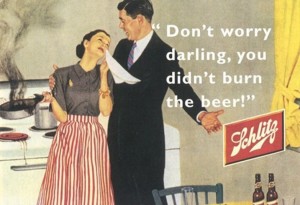
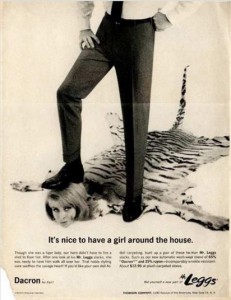
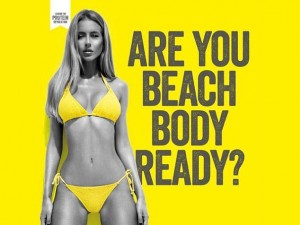
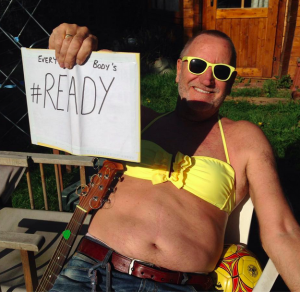
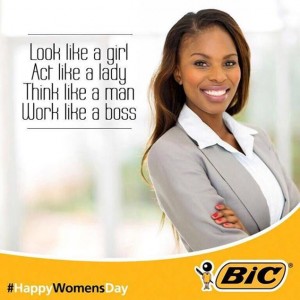

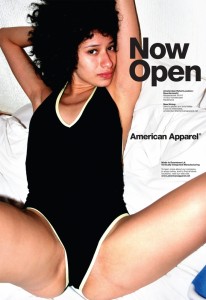

Leave a comment